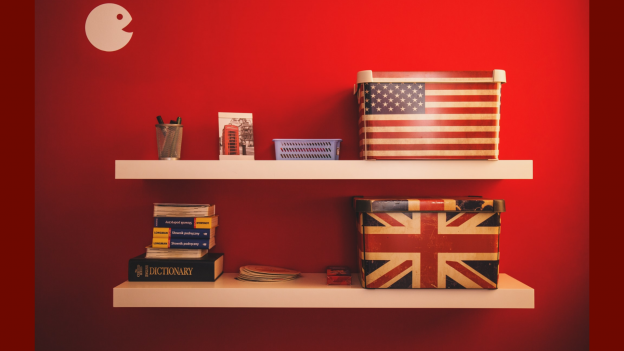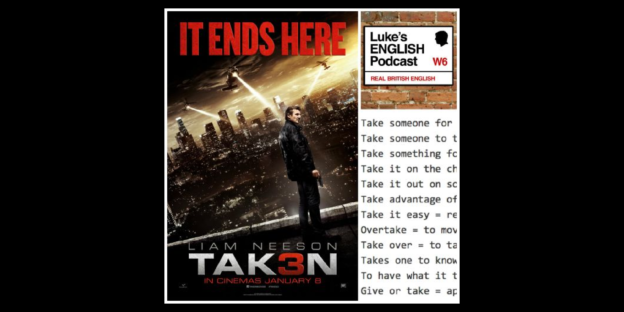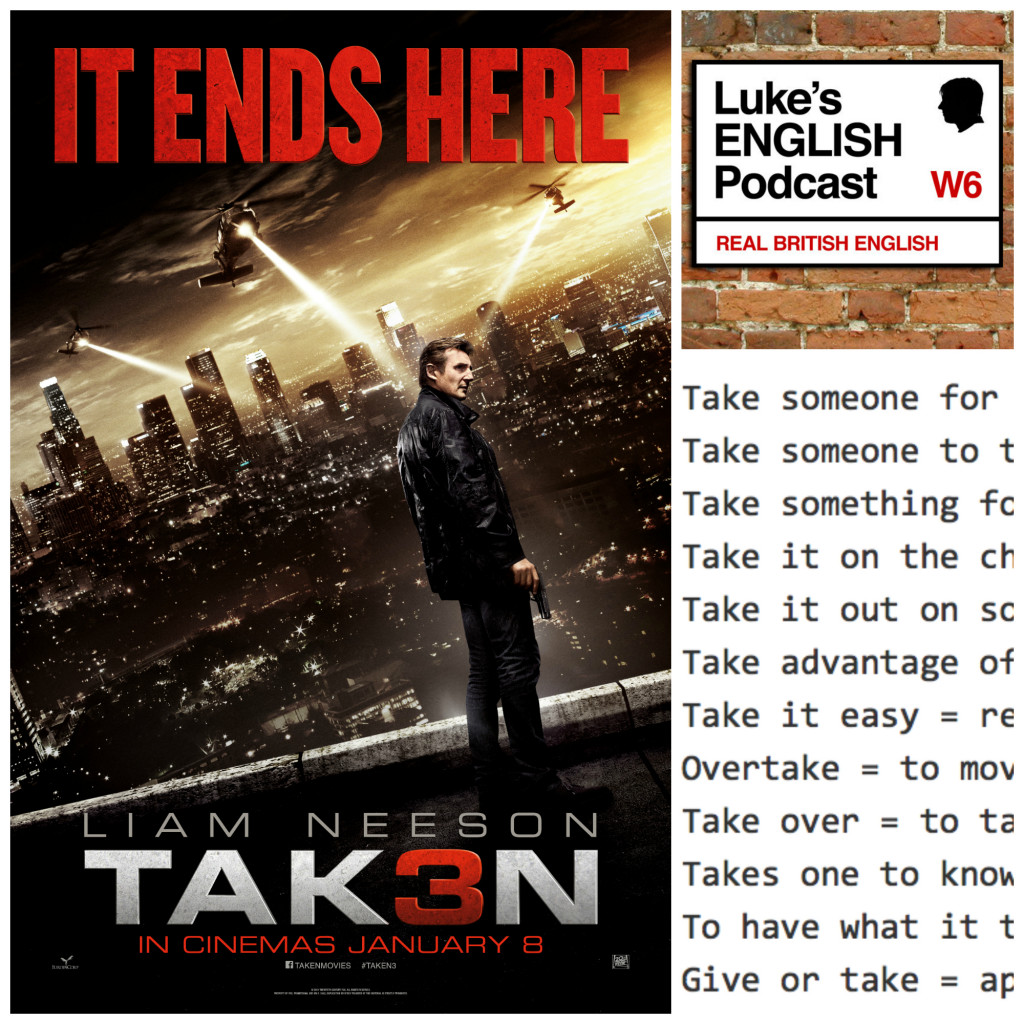Chatting to Sebastian Marx from New York and testing his knowledge of British English slang phrases. Slang vocabulary list available below.
[DOWNLOAD]
Introduction
This episode features a chinwag (that’s a conversation by the way) with Sebastian Marx – a friend of mine who is originally from New York (he’s an American) but who has been living in France for the last 15 years. Long term listeners might remember him from his past appearances on this podcast. You’ll see links to those episodes on the page for this episode.
Sebastian is a stand up comedian who performs both in English and French, and he was the one who first started doing stand up in English in Paris. So all of us comedians who perform on stage here in English, including Amber, Paul, Sarah Donnelly and others – we all have Sebastian to thank for originally giving us that opportunity as he is the one who got the whole scene started in the first place with the New York Comedy Night which he set up years ago.
I invited Seb onto the podcast just for a bit of a chat, but also to test his knowledge of British English slang. I’m always interested to see how much my American friends know about my version of English.
The Chinwag
In terms of the general chinwag – we talk for the first 25 minutes or so about a few topics, including:
- What he thinks of the Trump presidency
- His learning of French
- Speaking French or English to French people, like waiters in cafes
Then, after about 25 minutes of jibber-jabber, we decide to focus on language and you’ll hear me testing Seb’s knowledge of British English slang – informal spoken English phrases that most Brits know but which Americans are probably unfamiliar with.
This is slang so you should know that things get a bit rude later in the episode with some references to sexual acts – you know, sexual stuff, and also a few other fairly lewd and crude things like bodily functions and so on.
Some of you are probably delighted to hear that and have no problem with it at all but I feel I should give you a heads up about rude content, just in case you’re a teacher listening to this in class or something (I can imagine getting a message from a teacher who’s heard it, or perhaps even having a conversation, like this: Luke, I used an episode of your podcast in my young learners’ class the other day and oh, you started talking about… arseholes and chests, it was quite awkward — Oh dear I’m terribly sorry Mrs Crawly, I should have provided a warning of some kind. I trust that this will not affect my daughter’s entry into the Royal Academy in September. Perhaps you should come for tea and we can discuss it at length. I have one or two things to say to you about your conduct and how this is affecting your reputation among the staff at Downton. Oh, I’m terribly sorry to put you out Lady Crawley… etc… Sorry, I accidentally slipped into an episode of Downton Abbey there. Papa and Mama would be awfully disappointed, and we’ve just received a telegram that the first world war has started and we’re all terribly worried about how this might affect life at Downton and blah blah blah).
I dunno, maybe you’re a teacher or you’re listening to this with children, or maybe you just don’t like rude things of that nature. Basically – there’s some rude stuff in the second half of this episode. Alright? No big deal.
*it’s ok Luke – we fucking love rude stuff, don’t worry*
Alright, steady on…
OK, I promised myself I wouldn’t ramble too much at the start of this one so let’s crack on now, and here is the jingle….
The Slang you can hear in the episode
(listen to hear the full descriptions, examples and American English equivalents)
✔️= Sebastian knew it or guessed it correctly
❌= Sebastian didn’t know it or guessed it wrong
❌“Pants” (adjective) “That film was pants” = not great, rubbish
✔️“Knackered” (adjective”) “I’m absolutely knackered today” = exhausted, really tired / American English equivalent: “beat”
❌”Gobsmacked” (adjective) “I was absolutely gobsmacked” = shocked, surprised
Also: “shut your gob” = shut up, stop talking (gob = mouth)
✔️“a slash” (noun) “Hold on, I’m going for a slash” = I’m going to go and urinate
❌“On the lash” (prepositional phrase) “I’m going out on the lash tonight” = to go out drinking alcohol
✔️“To pull” (verb) “Hopefully I’m going to pull” = to score, get lucky, to get laid, to have sex with someone
“On the pull” = trying to ‘get lucky’ with someone
“To go out on the pull”
“To chat someone up” = to talk to someone to make them like you (sexually) to try to pull someone by talking
❌“To get off with someone” (phrasal verb) “I got off with her” = to kiss passionately on the lips (USA: to make out with someone)
“To get on with someone” = to have a good relationship with someone, to “hit it off with someone”
✔️“A plonker” (noun) “You are such a plonker” (not a swear word) = an idiot
❌”A tosser” (noun) “Stop being such a tosser” (synonym of “wanker” but less rude) an idiot, a person you don’t like
“a wanker” is a mean nasty unpleasant man that you’re angry with
“To wank” = to masturbate
“Asshole” (US English)
“Arsehole” (UK English)
✔️“A fag” (noun) “I’m just having a fag” = a cigarette (in US English it’s a very rude term of abuse meaning a homosexual)
❌“A wind up” (noun) “He’s a wind up merchant” “Is this a wind up?” = a joke, a piss-take, teasing, making fun of someone, playing a trick on someone, a con, a prank, lying to someone as a joke
“To wind someone up” = to annoy someone
❌“whingeing / to whinge” (verb) “Stop whingeing! You’re always whingeing.” = to complain, to moan, to whine, in an annoying way
✔️“Smart” (adjective) “You’re looking smart today. What’s the big occasion?” = to be well dressed, to be wearing formal clothing, to look clean and tidy (opposite = casual) (USA: smart = intelligent)
❌“Lush” (adjective) “Oh that’s lush” “Those trainers are lush” “Oh she is lush isn’t she?” = good, attractive (for a person), cool, great, awesome
❌“Grotty” (adjective) “I smoked a cigarette earlier and I’m feeling dead grotty now.” = unpleasant, dirty, feeling a bit unwell or under the weather
❌“Ta” (exclamation) “Could you pass me the sugar? Ta.” = thanks
✔️”A chinwag” (noun) “We’ve had a good chinwag” = conversation
❌“It’s all gone pear shaped” (idiom) “We did a Zoom call but everything went pear shaped because of technical problems” = to go wrong
Schlep (verb – US slang, from Yiddish) to carry something with difficulty, to carry something heavy – “I’ve been schlepping this bag around all day”
Schlep (noun – US slang, from Yiddish) a long and arduous journey – “I work on the other side of town and getting there is a real schlep!”
50 British phrases that Americans just don’t understand (MatadorNetwork)
https://matadornetwork.com/notebook/50-british-phrases-americans-just-dont-understand/
Ending
Music: Sippin’ Gin by Jim Thompson
Righty-ho, that was Sebastian Marx (thanks Sebastian) and 18 bits of British English slang.
How many did he get right? He predicted 50% I think. Well, out of 18 he identified 7. And my criteria for getting it right was whether he knew the word or phrase already or if he worked it out correctly, first guess, from my example. 7 out of 18. What’s that as a percentage? Some of the mathematicians are already on that, but I need a calculator to work that one out, unless you want to listen to me working that out in my head. Trust me, you don’t want to listen to that. I don’t think I can do it. Anyway, the result is… 38.88888888889 Let’s round that up to 39% which is a clear fail I think everyone can agree.
What does this mean? I’m not sure, except that it proves something about American and British culture and language. Sebastian made the point during the episode and I think I’ve said it before previously, like in that slang game I did with Jennifer from English Across the Pond last year.
Brits are way more familiar with American English than Americans (and of course I mean people from the USA) are with British English because we are exposed to a lot more American culture through TV and film than Americans are exposed to British culture.
America produces tons of TV and film of course and exports a massive amount too, but it doesn’t import as much TV and film as it exports. Basically, most Americans don’t get exposed to that much British English, certainly not the kind of local informal slang stuff that we touched on in this episode. Big surprise eh! Not really! We know this about the USA – big place, quite loud on the world’s stage, exports a lot of stuff, but to a large extent doesn’t look beyond its own borders all that much, relatively speaking. We all knew that though didn’t we!
Anyway, never mind all that geo-political stuff. I just enjoyed chatting with Sebastian in this episode and sharing some of my version of English with him. That is more interesting and fun for me.
What about you? How much of the slang in this episode did you know? I’ve definitely talked about some of those things before, but I bet there were one or two new things in there too.
But how much of it did you know and how much did you learn from me in previous episodes? And if you didn’t get it from me, where have you learned British slang? Let us know in the comment section!
Also, feel free to add other bits of British slang that you think is especially, quintessentially British in the comment section.
All the slang I tested Seb on is listed on the page for this episode on the website, so check it out. That’s where you can see specific spellings of words and phrases, and you can check some example sentences and definitions that I’ve given for you.
Talking of British English expressions – I must finish that series I started last autumn – 88 English expressions that will confuse everyone. Remember that? I still have about 25 expressions left to cover I think! I must get round to doing that.
My podcast is a bit like a big, slow moving ship. Sometimes I miss something or forget something and kind of sail past it, but for some reason it’s very hard to stop the ship or turn it round and go back. So, if I don’t do a specific episode I was planning to do at one point, general momentum keeps pushing me forwards and it’s difficult to turn the ship around and go back. I’m not sure why this is.
Stuff to mention at the end
Lovely comments from listeners on the last episode (in different locations like YouTube, website, twitter, email) My wife said that the comments were cute and lovely.
Something evil this way comes… Episode 666 is next.
666 → often described as the number of the beast. The mark of the devil.
Lots of people have been asking if I’m planning anything special for that.
Well, you’ll have to wait and see…
Previous episodes with Sebastian
130. A Cup of Tea with… Sebastian Marx
183. Luke’s D-Day Diary (Part 1)
247. Understanding The USA (with Sebastian Marx)
298. The Bank Robbery (Part 1)
299. The Bank Robbery (Part 2) with Amber, Paul & Sebastian
388. US Presidential Election 2016 – Trump vs Clinton (with Sarah & Sebastian) Part 1
389. US Presidential Election 2016 – Trump vs Clinton (with Sarah & Sebastian) Part 2





